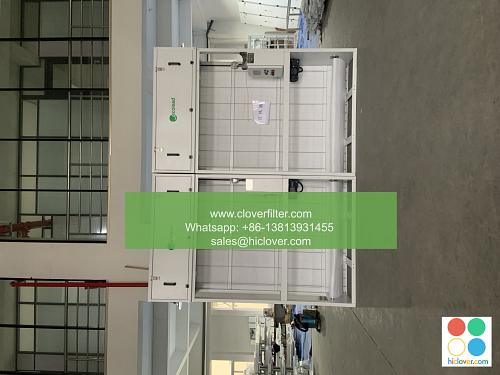Air Filter Options for Specific Regions: What Works Best for Your Area

When it comes to maintaining good air quality in your home or business, choosing the right air filter is crucial. Different regions have unique air quality challenges, and selecting an air filter that is tailored to your area’s specific needs can make a significant difference. In this article, we will explore the various air filter options available for specific regions, highlighting the benefits and application areas of each.
Understanding Regional Air Quality Challenges
Before selecting an air filter, it’s essential to understand the air quality challenges in your region. For instance, areas prone to wildfires and dust storms require air filters that can capture fine particles and smoke. Regions with high humidity and pollen levels, on the other hand, need air filters that can handle moisture and allergens. By considering these factors, you can choose an air filter that is optimized for your region’s specific air quality challenges.
Air Filter Options for Dry and Dusty Regions
For areas with dry and dusty conditions, such as the Southwestern United States, air filters with a high MERV rating (Minimum Efficiency Reporting Value) are recommended. These filters can capture small particles, including dust, pollen, and pet dander. Some popular air filter options for dry and dusty regions include:
* HEPA filters: These filters can capture 99.97% of particles as small as 0.3 microns, making them ideal for areas with high dust and pollen levels.
* Activated carbon filters: These filters can capture odors and gases, including those from wildfires and volatile organic compounds (VOCs).
Air Filter Options for Humid and Pollen-Prone Regions
For areas with high humidity and pollen levels, such as the Southeastern United States, air filters that can handle moisture and allergens are necessary. Some popular air filter options for humid and pollen-prone regions include:
* Electrostatic filters: These filters use an electrostatic charge to attract and capture particles, including pollen and dust.
* Antimicrobial filters: These filters can capture bacteria and mold, which can thrive in humid environments.
Air Filter Options for Urban and Industrial Areas
For areas with high levels of air pollution and particulate matter, such as urban and industrial areas, air filters that can capture a wide range of particles are necessary. Some popular air filter options for urban and industrial areas include:
* Ionizing air purifiers: These filters use ions to attract and capture particles, including PM2.5 and PM10.
* UV air purifiers: These filters use ultraviolet light to kill bacteria and viruses, which can be present in urban and industrial areas.
Conclusion
Choosing the right air filter for your region can make a significant difference in maintaining good air quality. By considering the unique air quality challenges in your area, you can select an air filter that is optimized for your specific needs. Whether you live in a dry and dusty region, a humid and pollen-prone region, or an urban and industrial area, there is an air filter option available that can help improve the air quality in your home or business. Remember to always check the MERV rating and look for certifications from reputable organizations, such as the Asthma and Allergy Foundation of America, to ensure that you are getting a high-quality air filter that meets your needs. It looks like you’re ready to start a conversation or ask a question, but you haven’t given me a specific prompt yet. What’s on your mind? Do you want to discuss a particular topic, ask for advice, or explore a creative idea? I’m here to help and provide information on a wide range of subjects. Please go ahead and share your thoughts!

